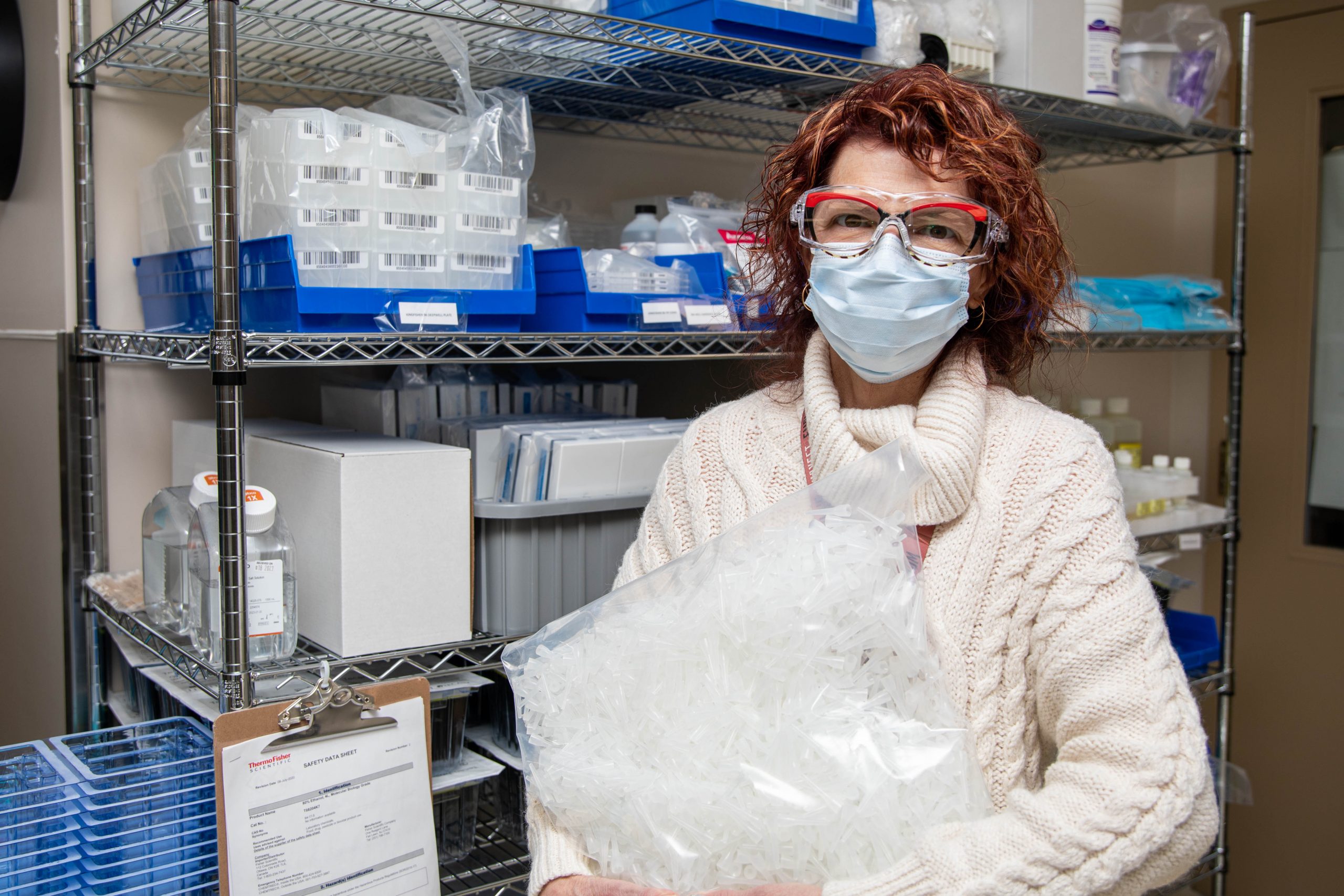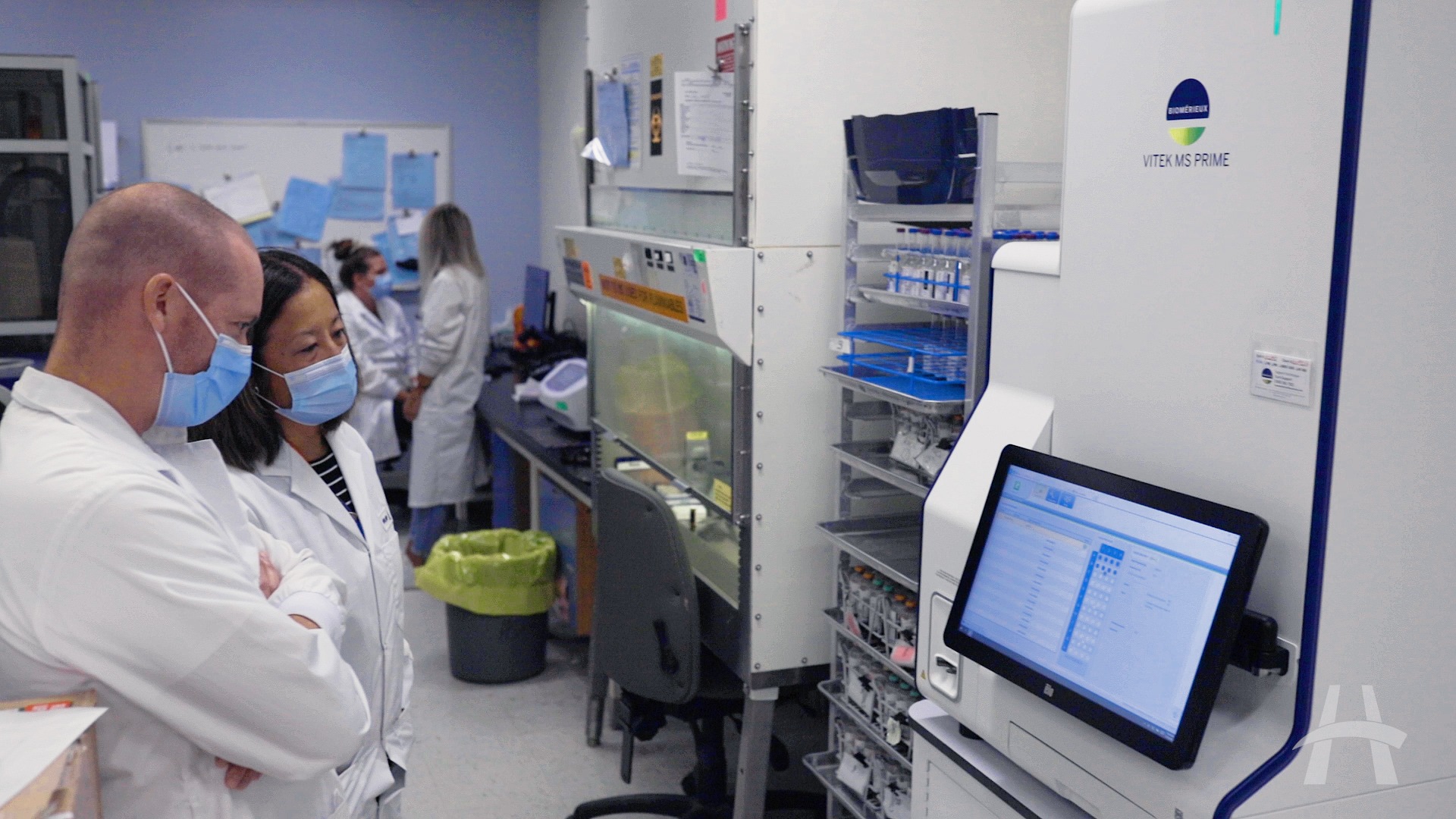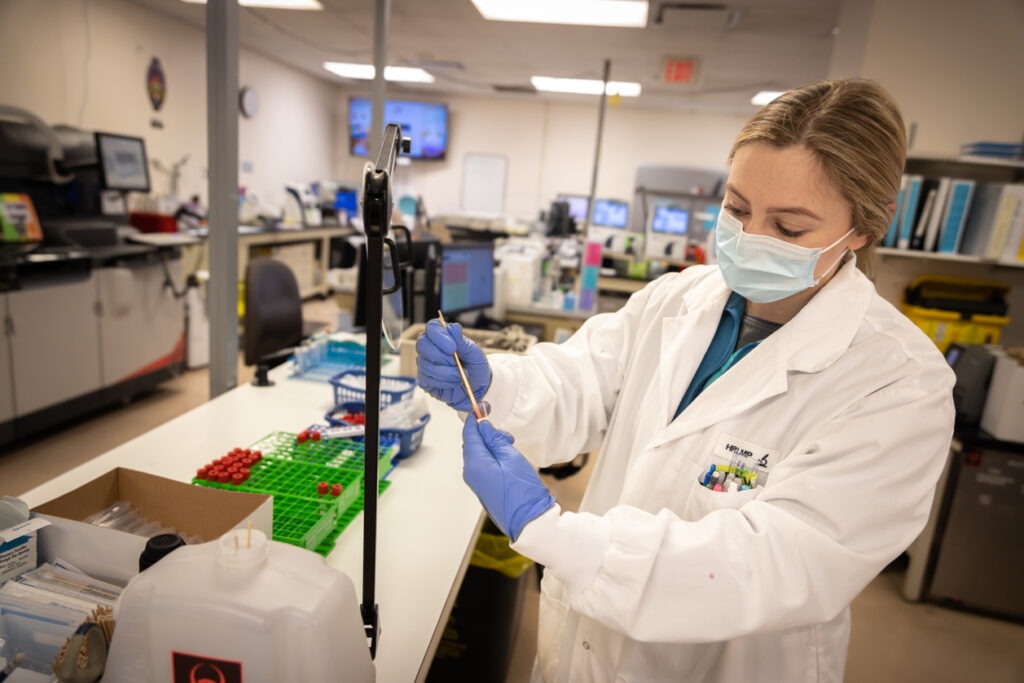
Introducing a medical laboratory technologist

Julia Acker, medical laboratory technologist
National Medical Laboratory Week, from April 9 to 15, brings awareness to the lifesaving work done by labs and promotes lab work as a profession.
We’re pleased to feature Julia Acker, a medical laboratory technologist with Hamilton Health Sciences (HHS). Acker is part of the Hamilton Regional Laboratory Medicine Program (HRLMP), a partnership between HHS and St. Joseph’s Healthcare Hamilton. The HRLMP is made up of 30 labs across both hospitals, with over 700 team members. Acker’s lab is located at HHS’ Juravinski Hospital and Cancer Centre.
Finding her calling
Medical laboratory technologist (MLT) Julia Acker discovered her passion for science back in high school.
“I really just fell upon this profession, and it’s the best thing that ever happened to me.”
“Most kids loved gym and lunch, but I loved chemistry,” says Acker, an MLT with the Hamilton Regional Laboratory Medicine Program. “I really enjoyed using all of the instruments and measurement tools in my high school chemistry classes. I thought lab work was so cool.”
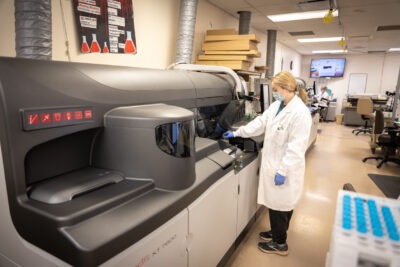
Julia Acker loads a tray of blood samples onto the chemistry analyzer. This 24/7 analyzer is responsible for measuring the amount of different compounds found in blood such as potassium, glucose and calcium.
In Grade 12, while considering careers, an MLT program featured in a university catalogue grabbed Acker’s attention. “Until then, I didn’t realize that this job existed,” says Acker. “I knew, right at that moment, that this was exactly what I wanted to do with my life.” She has been working as an MLT since graduating from her university program in 2019.
Acker is sharing her passion for her profession to help promote National Medical Laboratory Week, taking place April 9 to 15.
“It’s certainly not the first health-care profession people think of when considering careers,” says Acker. “We work behind-the-scenes, so patients and the public don’t hear a lot about our work.”
Rewarding work
“MLTs are kind of like medical detectives.”
Medical laboratory technologists perform tests on blood, body fluids, cells and tissues – nearly half a million in Ontario each day, says the College of Medical Laboratory Technologists of Ontario. Results provide vital information needed to diagnose and treat a wide variety of conditions from high cholesterol to cancer. According to the Medical Laboratory Professionals’ Association of Ontario, 70 per cent of medical decisions rely on lab results.
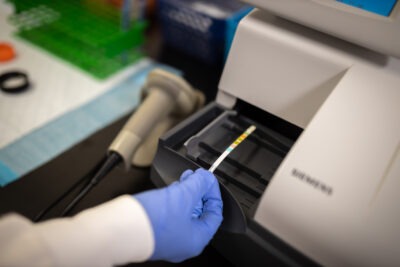
A urine sample is tested using a dipstick. Each pad on the strip has its own chemical reaction, and the colour produced determines the result.
“We basically test anything that comes out of, or off of, the human body,” says Acker. Every sample— from COVID-19 swabs; to blood, urine and stool samples; to tumours removed during surgery— is processed and analyzed by an MLT.
Medical detectives
“MLTs are kind of like medical detectives,” adds Acker. “We gather all of the information collected from the samples we examine and give the results to doctors who provide a diagnosis. It’s incredibly satisfying to know that the work we do plays a key role in a patient’s diagnosis and could lead to lifesaving treatment.”
Most of Acker’s work focuses on analyzing blood samples. “There are so many different facets of lab medicine but the one I focus on, which is my favourite, is hematology. That’s where your hematologic (blood) cancers come into play.”
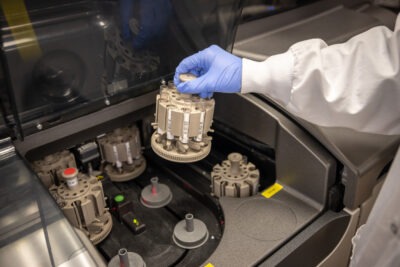
A tray of specimens is loaded onto the chemistry analyzer. Each tray can hold up to 10 samples, and the analyzer can hold eight trays at a time. It means that up to 80 samples can be analyzed at once.
Another aspect she finds fascinating is examining less common body fluids, such as synovial fluid, a thick liquid located between the joints. This fluid is analyzed in a lab to check for disorders affecting the joints. “We’re seeing samples in real life that we only read about in textbooks while at school.”
Acker received both a university degree and MLT designation through her program at Ontario Tech University, but a more common path is a three-year MLT college program.
Becoming an MLT is a career worth considering, especially for people who are highly organized and detail-oriented, says Acker. “I really just fell upon this profession, and it’s the best thing that ever happened to me.”

